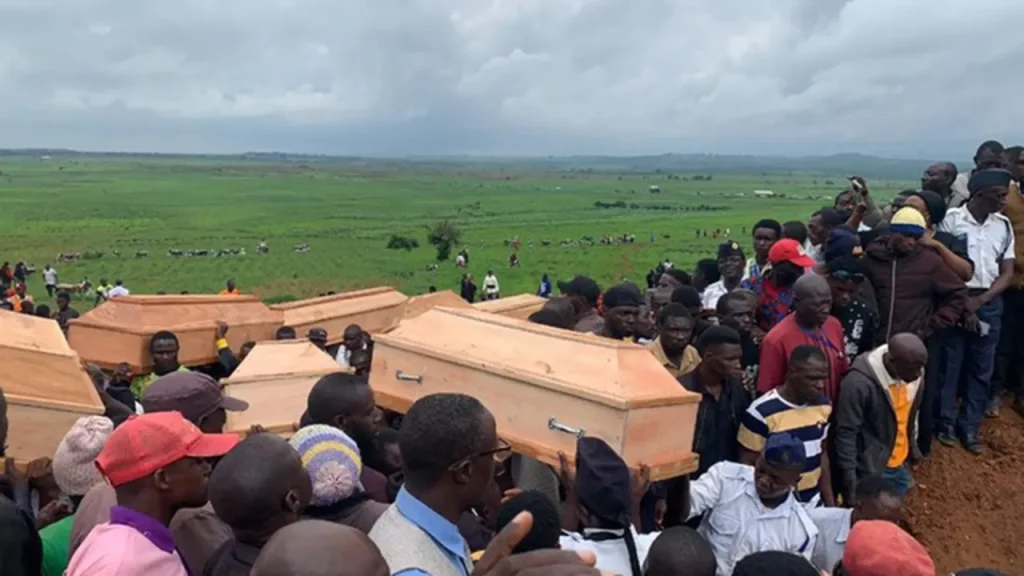Diplomatic Battle Erupts Over Christian Persecution in Nigeria
Cruz and Nigerian Officials Clash Over Religious Violence Claims
A fierce diplomatic confrontation has erupted between U.S. Senator Ted Cruz and Nigerian government officials regarding the alleged persecution of Christians in the West African nation. Cruz, who chairs the Senate Subcommittee on Africa and Global Health Policy, has accused Nigerian authorities of enabling what he describes as the “mass slaughter” of tens of thousands of Christians. His claims have provoked strong denials from Nigerian officials, with President Bola Ahmed Tinubu’s spokesperson demanding that Cruz “stop these malicious, contrived lies.” The dispute highlights the complex religious tensions in Nigeria, where approximately 48% of the population identifies as Christian, and the challenges in addressing religious violence in a multi-faith society.
The gravity of the situation is underscored by data from Open Doors International, which places Nigeria among the most dangerous countries for Christians in its 2025 World Watch List. According to their reporting, of the 4,476 Christians killed worldwide during their latest assessment period, a staggering 3,100—or 69%—were in Nigeria. Cruz’s accusations are specific and severe: “Since 2009, over 50,000 Christians in Nigeria have been massacred, and over 20,000 churches and Christian schools have been destroyed.” He attributes these atrocities directly to policies implemented by Nigerian federal and state officials, claiming that the government enforces blasphemy laws and ignores or facilitates violence targeting Christians. The senator recently introduced the Nigeria Religious Freedom Accountability Act, which would impose sanctions on officials he deems responsible for enabling religious persecution.
Nigerian officials have responded with vehement denials. Information Minister Mohammed Idris told Fox News Digital that Cruz’s claims are “very misleading” and “absolutely absurd,” questioning the source of the senator’s statistics and categorically rejecting the suggestion that Nigerian officials would “willingly, deliberately indulge in the act of siding with violent extremists to target any particular religion.” Idris emphasized that Nigeria is a “multi-faith country” and “very tolerant,” acknowledging the presence of extremist organizations but insisting they target both Christians and Muslims. Presidential spokesperson Bayo Onanuga similarly asserted that “Christians are not targeted” and that Nigeria enjoys “religious harmony,” despite evidence to the contrary, including public statements from Pope Francis acknowledging the killings.
Independent observers offer a more nuanced perspective that nonetheless validates concerns about targeted anti-Christian violence. Natalie Blair from Open Doors’ Advocacy team acknowledges that extremist groups like Boko Haram and Islamic State West Africa Province (ISWAP) kill Muslims who don’t conform to their ideology, but notes they have “explicitly and repeatedly declared Christians as targets.” She cites data from the Observatory for Religious Freedom in Africa showing that Christians in northern Nigeria are 6.5 times more likely to be killed by extremists than Muslims. Reports from the ground add weight to these concerns, with victims recounting attackers shouting not just “Allahu Akbar” but explicitly threatening to “destroy all Christians.” These testimonies suggest religious identity plays a significant role in the violence, even if other factors are also at play.
The testimony of Bishop Wilfred Anagbe before Congress in March provides a particularly disturbing perspective from someone directly affected by the violence. Anagbe, whose Makurdi Diocese is almost entirely Christian, described a “long-term Islamic agenda to homogenize” Nigeria’s population that has been “implemented over several presidencies.” He characterized the attackers as terrorists “going about on a jihad and conquering territories and renaming them accordingly.” Information Minister Idris dismissed the bishop’s testimony as “extreme” and “not true,” further illustrating the stark disconnect between the Nigerian government’s official position and the experiences reported by religious leaders and victims on the ground. This dismissal of firsthand accounts raises questions about the government’s commitment to addressing the crisis.
The heart of this conflict lies in accountability and justice—or the lack thereof. Open Doors’ Blair points to a “culture of impunity” that perpetuates the violence, noting that victims “do not trust that anyone will pay for these violent crimes” because they have witnessed “hundreds of suspects arrested over the years and then most of them released, having never been charged or brought to trial.” This failure to deliver justice undermines constitutional protections and erodes public trust in the rule of law. As Cruz pointedly stated, the atrocities “are the result of decisions made by specific people, in specific places, at specific times. The United States knows who those people are, and I intend to hold them accountable.” Whether his proposed legislation will succeed in addressing the complex religious violence in Nigeria remains to be seen, but the diplomatic confrontation has certainly brought renewed international attention to a crisis that has claimed thousands of lives and threatens to destabilize Africa’s most populous nation.


